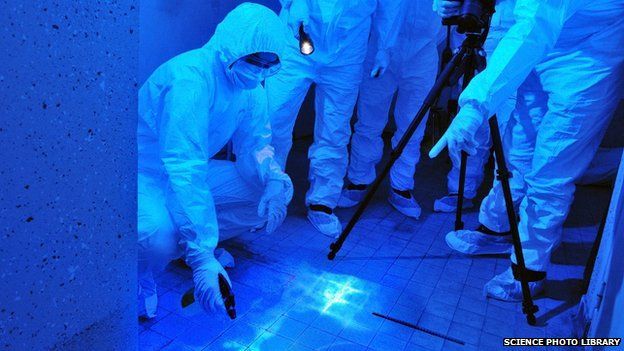Forensic test pins down 'time of death'
- Published

Forensic researchers have developed a new method for establishing an exact time of death after as long as 10 days.
The team from Austria's University of Salzburg measured the breakdown of muscle proteins in dead pigs over time.
It is a significant step forward from the current method of measuring core body temperature, which only works up to 36 hours after death.
The breakthrough was announced at the Society for Experimental Biology's annual conference in Prague.
Dr Peter Steinbacher, the lead researcher on the study, told BBC News that there was "a huge lack of reliable methods" to calculate the time of death "after the moment when the body has cooled down to environmental temperatures".
"Depending on the temperature, this takes normally about one to two days," said Dr Steinbacher, from the University of Salzburg.
"We're searching for a new way to assess the time of death after this... [and found that] muscle protein degradation proved to be a very promising method."
Vital evidence
The team studied the muscle proteins of pigs, because of their close similarity to human muscles.
The protein building blocks of our muscles are very large, tangled molecules that, after death, begin to break down into smaller pieces.
"This happens for some of the proteins in a very specific time frame," Dr Steinbacher explained. "Even the breakdown products are present for a specific time.
"So if you know which of these products are present in a sample then you know when the individual died."
The team has also analysed more than 60 human tissue samples from the forensic department of the same university. And their preliminary findings showed similar clockwork-like changes.
"We now need more samples to find out whether gender, body mass index, temperature, humidity, etc play a role in the time-course of muscle breakdown," said Dr Steinbacher.
He and his colleagues hope that within three years, this technique could help in the gathering of vital forensic evidence.
False dawns
Dr Stuart Hamilton, a forensic pathologist from the University of Leicester said the research was interesting and that "any research that could assist in helping narrow down a time of death is always of value".
But he cautioned that there had been many "false dawns" in this quest.
He told BBC News: "It will take some time before this is validated for court use.
"There is so much riding on the time of death in many murders that we will all as a forensic and legal community have to be very convinced that there are no confounding factors before we start relying on this to convict someone."
- Published12 February 2015
- Published9 January 2012